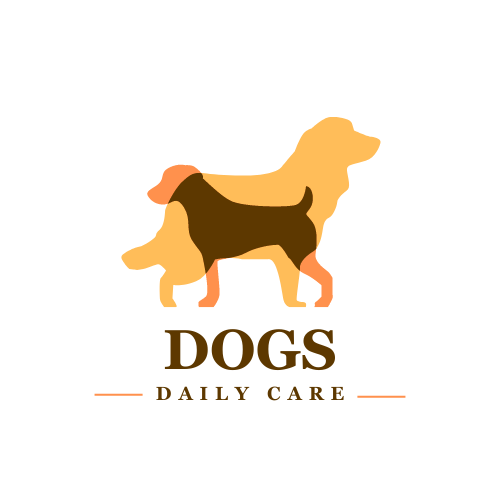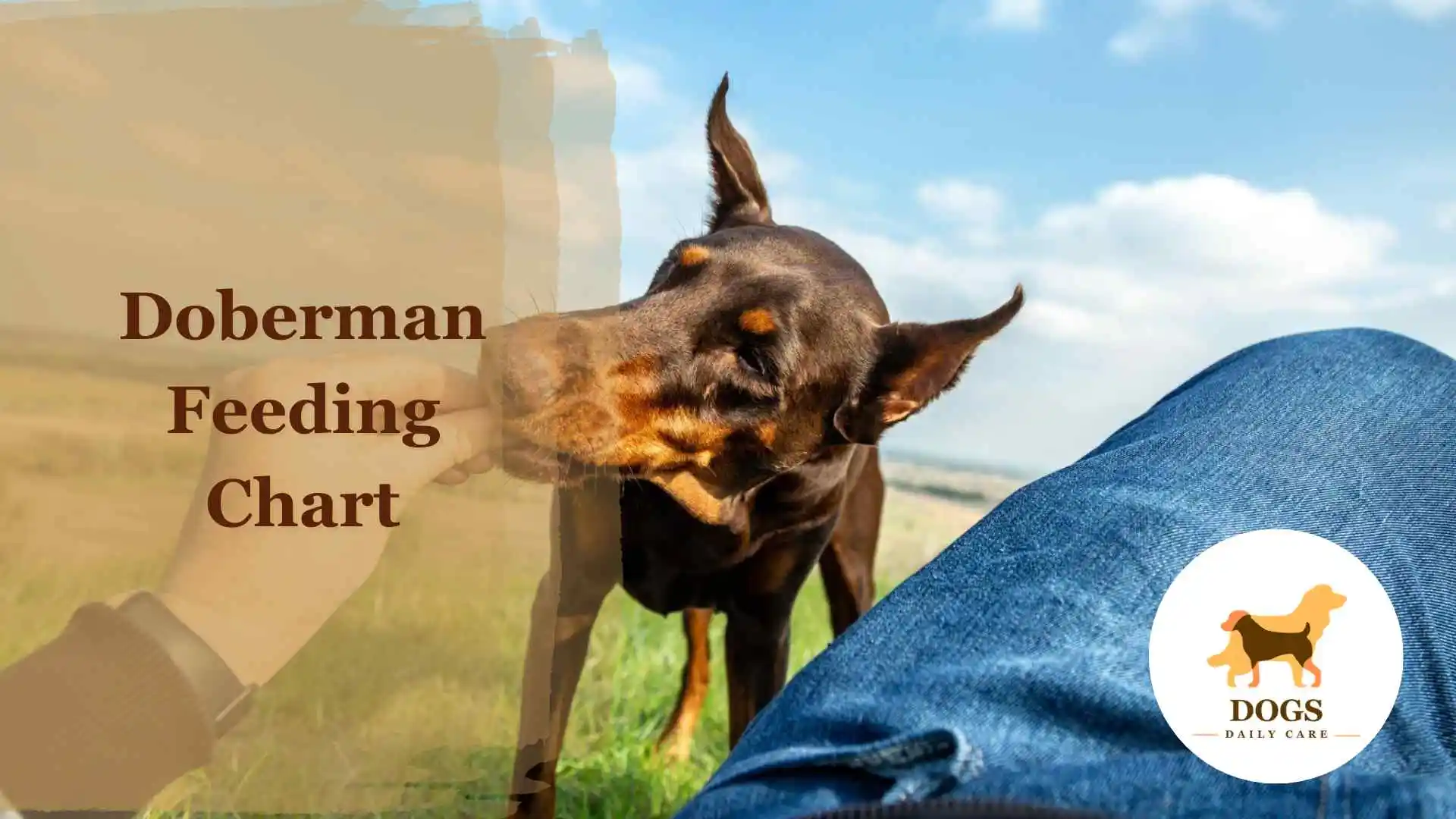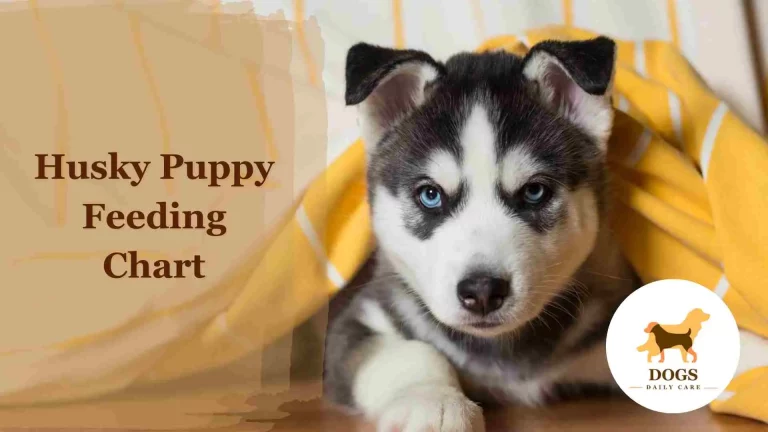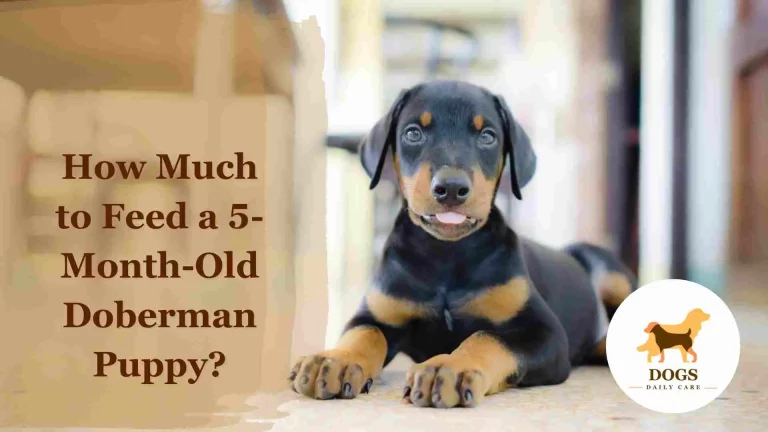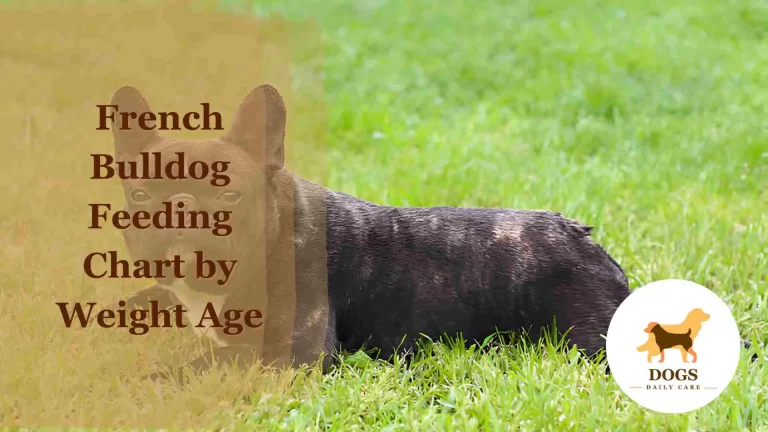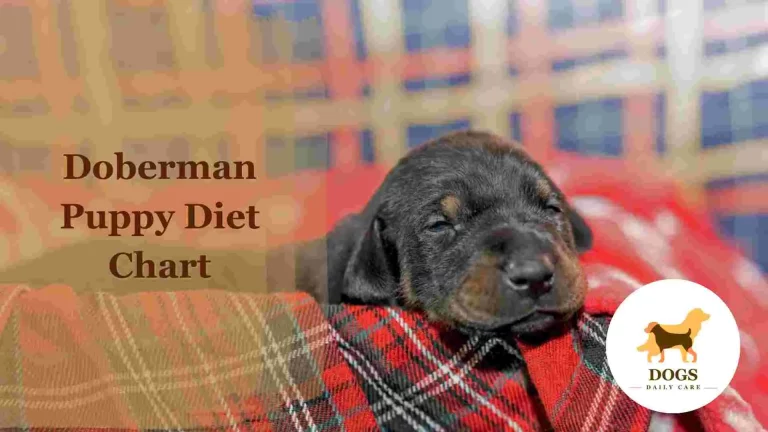Doberman Feeding Chart – An Ultimate Guide
Welcome to the essential guide for Doberman owners! Renowned for their loyalty, intelligence, and majestic stature, Dobermans are a breed that commands admiration. As a Doberman parent, understanding the specific dietary needs of your canine companion is crucial for their overall health and longevity.
This guide is designed to provide you with comprehensive insights into the ideal nutrition for these magnificent animals. From protein-rich diets to balanced meal plans, we delve into what it takes to keep your Doberman thriving.
In this article, we introduce you to the world of Doberman nutrition through a detailed feeding chart tailored to their unique needs. Whether you’re nurturing a playful puppy, caring for an energetic adult, or looking after a graceful senior, the right diet is key to their wellbeing.
Our Doberman Feeding Chart offers an easy-to-follow framework, ensuring your furry friend receives the perfect balance of nutrients at every stage of their life. Let’s embark on this journey to ensure your Doberman enjoys a healthy, happy, and active life!
Understanding a Doberman’s Nutritional Needs
Every Doberman owner knows these dogs are special. But did you know their diet needs are unique too? A healthy diet is key to keeping your Doberman happy and active. Let’s explore what makes up the perfect meal for your furry friend.
Proteins are the building blocks for a strong Doberman. They support muscle growth and repair. Look for high-quality meat in dog food – it’s the best protein source for your dog. Remember, a strong Doberman is a happy Doberman!
Fats are also important. They give your Doberman energy. But not all fats are good. Focus on healthy fats like fish oil. It keeps their coat shiny and their joints healthy.
Carbohydrates matter too. They provide energy and keep your dog’s digestive system running smoothly. Whole grains and vegetables are great carb sources. They also add important vitamins and minerals to your Doberman’s diet.
Speaking of vitamins and minerals, they’re vital for a healthy immune system. They also keep bones strong. A balanced dog food will have the right mix of these nutrients. But it’s always good to check!
As your Doberman grows, their dietary needs change. Puppies, adults, and seniors have different requirements. It’s important to match their food with their life stage. This keeps them at their best, whether they’re playful pups or dignified seniors.
In the next sections, we’ll dive into the details for each life stage. From the energetic puppy years to the golden senior days, we’ve got your Doberman covered!
The Doberman Feeding Chart: An Overview
Navigating your Doberman’s diet can be tricky. That’s where a feeding chart comes in! It’s like a roadmap for your dog’s meals. In this section, we’ll introduce you to the basics of a Doberman feeding chart. It’s your go-to guide for keeping your furry friend healthy and well-fed.
What’s in a feeding chart? It lays out how much and how often to feed your Doberman. But it’s not one-size-fits-all. The chart varies based on age, weight, and how active your dog is. A playful puppy has different needs from a laid-back senior. And an active adult Doberman needs more fuel than a couch potato!
The chart helps you avoid overfeeding or underfeeding. Both can lead to health problems. Overfeeding can cause obesity, while underfeeding can leave your dog malnourished. The right balance is key. And that’s what the feeding chart helps you achieve.
Remember, every Doberman is unique. Some may need more food, some less. It’s important to watch your dog and adjust their diet as needed. Regular check-ins with your vet are also a great idea. They can give personalized advice to keep your Doberman in top shape.
Feeding Your Doberman Puppy
Raising a Doberman puppy? Their diet is key to their growth and health. Puppies need different food than adult dogs. It’s richer in nutrients to help them grow strong and healthy. In this section, we’ll guide you through feeding your Doberman puppy, with a handy table for quick reference.
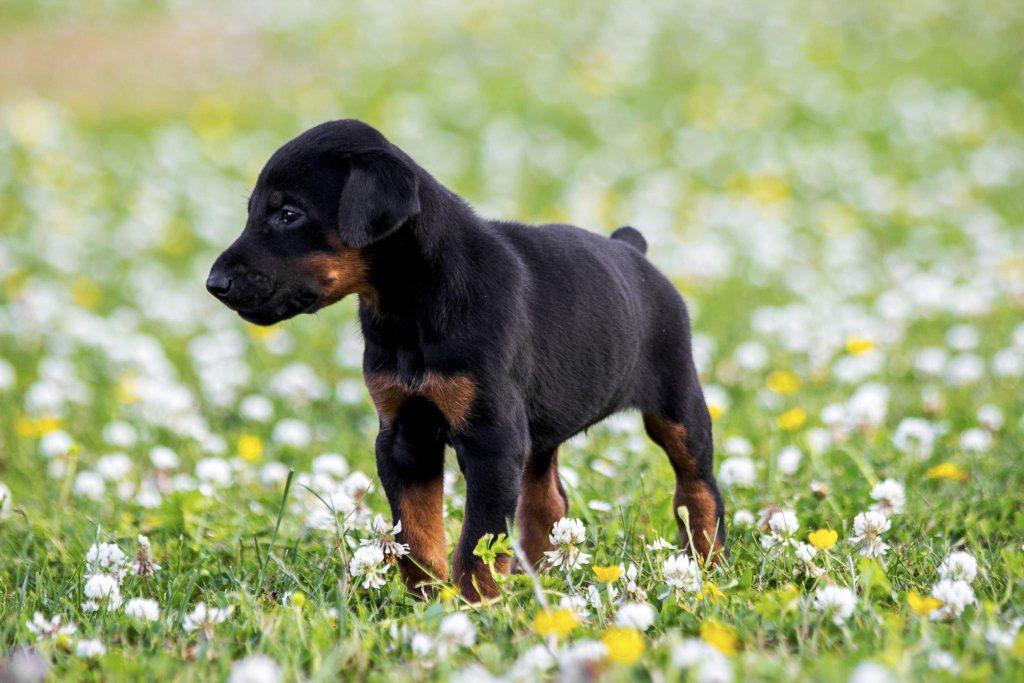
Puppies grow fast. They need more protein, fat, and calories than adult dogs. But how much should you feed them? And what kind of food is best? Our table breaks it down by age, food type, portion size, feeding frequency, and the nutrition each food provides. This makes it easy to give your puppy exactly what they need.
Note: These are general guidelines. Adjust portions if your puppy is more or less active than average.
Puppy kibble is designed for growing dogs. It has the right mix of nutrients. Start with smaller, more frequent meals. As your puppy grows, you can feed them larger portions less often.
Watch your puppy’s weight and health. If they look too thin or chubby, adjust their food amount. Always have fresh water available. And remember, treats are fine but in moderation. They should be less than 10% of your puppy’s diet.
Feeding an Adult Doberman
When your Doberman reaches adulthood, their dietary needs shift. Adult Dobermans need a balanced diet to maintain their health and energy. In this section, we’ll cover the ideal feeding routine for an adult Doberman, complete with a straightforward table to guide you.
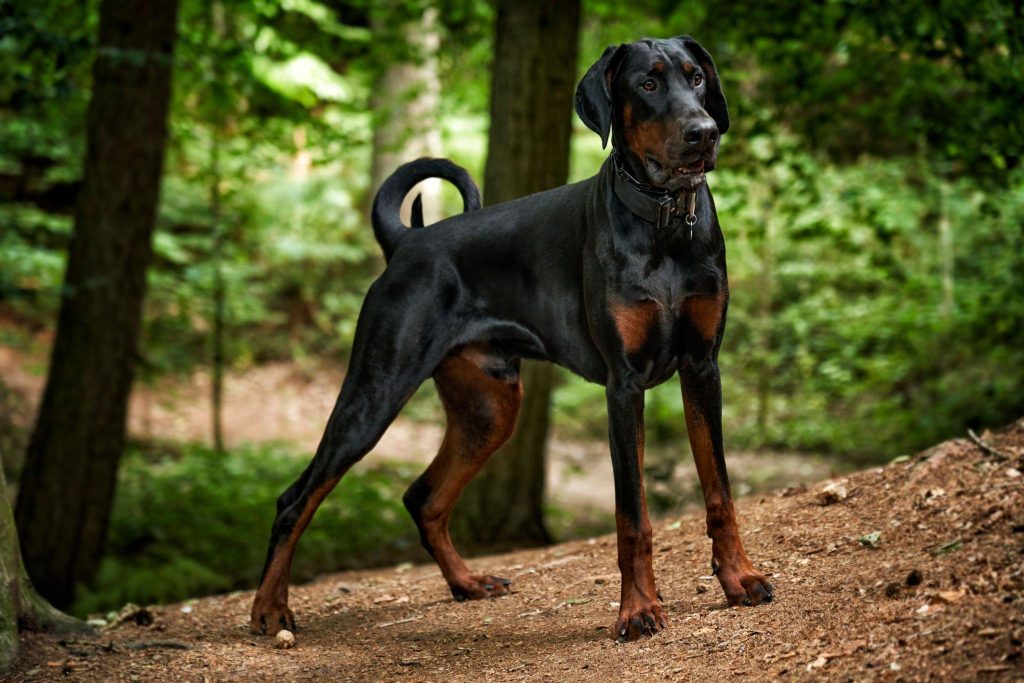
Adult Dobermans don’t grow like puppies, but they still need good nutrition. Their food should support muscle maintenance, joint health, and overall well-being. Portion control is crucial to prevent obesity, a common issue in adult dogs. The table below provides a clear guide on what to feed your adult Doberman, how much, and how often.
Note: These are general guidelines. Adjust portions based on your dog’s activity level and weight.
Choosing the right food is important. Look for high-quality kibble with real meat, healthy fats, and essential nutrients. Avoid fillers and artificial additives. As your Doberman ages, they may need fewer calories. A senior formula can help, especially if they’re less active.
Monitor your dog’s weight and health. Adjust their diet if you notice weight gain or loss. Always provide plenty of fresh water. And remember, treats are okay but should be limited.
Special Dietary Considerations for Senior Dobermans
As Dobermans enter their senior years, their dietary needs change again. It’s crucial to adapt their diet to support their aging bodies. In this section, we’ll focus on the nutritional needs of senior Dobermans and provide a handy table for reference.

Senior Dobermans typically require fewer calories but still need nutrient-rich food. Their diet should support joint health, digestion, and overall wellness. It’s important to monitor their weight and adjust their food intake as needed. Here’s a simple guide to help you feed your senior Doberman right.
Senior dog food is different from adult formulas. It usually has fewer calories and is easier to digest. Ingredients like glucosamine are great for joint health. If your Doberman has dental issues, softer foods or wet food can be a good addition.
Keep an eye on your dog’s weight. Changes in weight can indicate health issues. And always have fresh water available, as seniors need more hydration.
Treats are still okay, but in moderation. Choose healthier options like low-calorie treats or fresh veggies.
Tips for Choosing the Right Dog Food
Picking the right food for your Doberman is vital. With so many options, it can be overwhelming. This section will give you simple, clear tips to help you choose the best food for your dog.
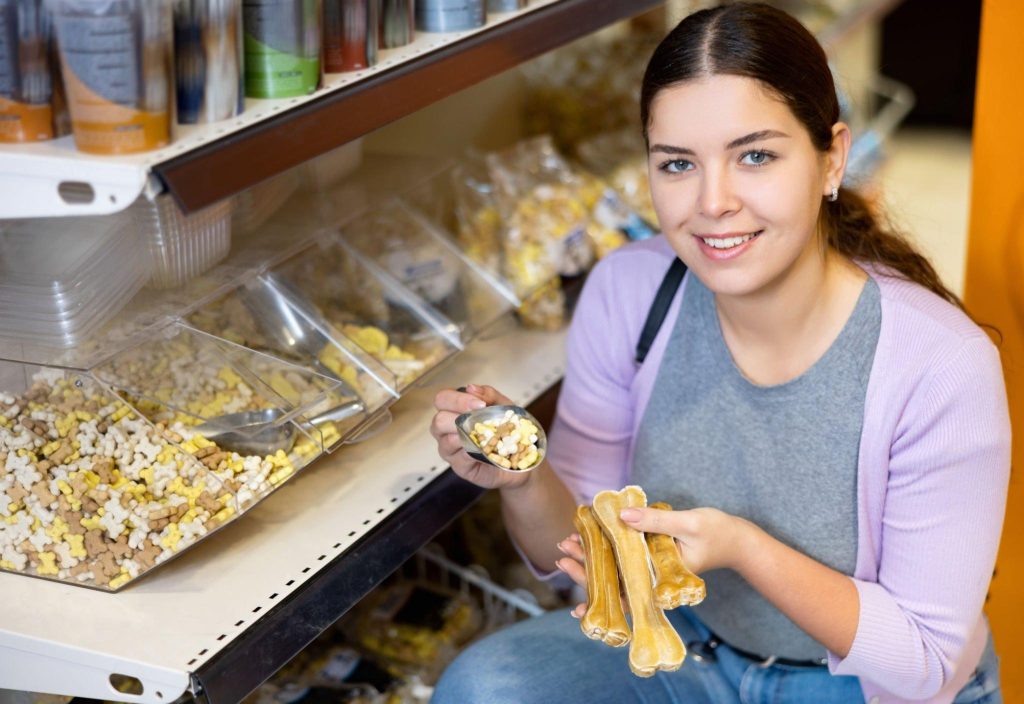
1. Check the Ingredients
The first ingredient should be a high-quality source of protein, like chicken, beef, or lamb. Real meat provides essential nutrients for your Doberman’s health.
2. Look for Balanced Nutrition
Good dog food should have a mix of protein, fats, and carbohydrates. It should also include essential vitamins and minerals for overall health.
3. Avoid Fillers and Additives
Steer clear of foods with lots of fillers like corn and wheat. Artificial colors and preservatives are also a no-go. They offer no nutritional value and can be harmful.
4. Age-Appropriate Food
Puppies, adults, and seniors have different nutritional needs. Make sure to choose a formula that’s right for your Doberman’s life stage.
5. Consider Special Diets
If your Doberman has allergies or sensitivities, look for hypoallergenic or grain-free options. There are also formulas for weight control if your dog is overweight.
6. Wet vs. Dry Food
Dry kibble is great for dental health and convenience. Wet food can be more palatable and hydrating. Some owners choose a mix of both.
7. Read Reviews and Research Brands
Look for brands with good reputations and positive reviews. Trusted brands are more likely to provide high-quality, safe food.
8. Consult Your Vet
Your vet can provide personalized recommendations based on your Doberman’s health, weight, and any specific dietary needs.
Remember, every Doberman is different. What works for one might not work for another. Keep an eye on your dog’s health and adjust their diet as needed.
Frequently Asked Questions (FAQs) About Doberman Diets
Q1. What is the best diet for a Doberman puppy?
A: Doberman puppies thrive on high-protein, high-fat diets that support their rapid growth. Look for puppy-specific kibble that lists real meat as the first ingredient. Feeding them three times a day is ideal.
Q2. Can I feed my adult Doberman a raw food diet?
A: Yes, raw diets can be good for Dobermans, but they need to be well-planned. It’s important to ensure a balance of meat, bones, and organs for proper nutrition. Always consult your vet before switching to a raw diet.
Q3. How often should I feed my senior Doberman?
A: Senior Dobermans typically do well with two meals a day. Choose senior-specific dog food that’s lower in calories but still nutrient-rich, to cater to their slower metabolism and reduced activity levels.
Q4. Are grain-free diets better for Dobermans?
A: Grain-free diets can be beneficial for Dobermans with grain allergies or sensitivities. However, grains are not inherently bad and can be a good source of energy. Consult with your vet to determine if a grain-free diet is necessary.
Q5. How can I tell if my Doberman is overweight and what should I do?
A: Check if you can feel their ribs without a thick layer of fat and look for a visible waistline. If your Doberman is overweight, reduce portion sizes, limit treats, and increase exercise. Consult your vet for a tailored weight-loss plan.
Conclusion
We’ve covered a lot of ground in this guide, from the specific dietary needs of Doberman puppies to the unique considerations for senior dogs. Remember, the right diet is crucial for your Doberman’s health and happiness.
Whether it’s choosing the correct portion sizes, selecting the best food type, or understanding their nutritional needs at different life stages, every decision you make has a significant impact. Always prioritize high-quality ingredients and maintain a balanced diet to ensure your Doberman leads a long, healthy, and active life.
In conclusion, while the guidelines provided here are a great starting point, remember that each Doberman is unique. Regular consultations with your vet and careful observation of your dog’s health and behavior are key to providing the best care. We hope this guide helps you make informed choices about your Doberman’s diet and contributes to their wellbeing. Happy feeding, and here’s to the health and joy of your loyal companion!
